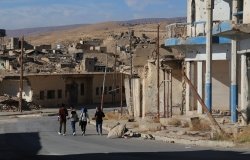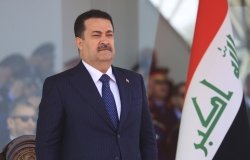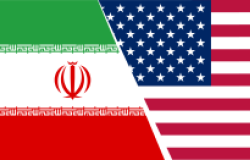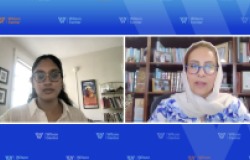Is Egypt on the Right Path? A Conversation with Egyptian Policymakers
Egyptian policymakers will discuss whether Egypt is on the right path.
Overview
Three policymakers from an Egyptian delegation visiting Washington discussed the current state of affairs in Egypt, prospects for democracy, and the future role of the Muslim Brotherhood in their country.
On September 16, the Middle East Program at the Woodrow Wilson Center hosted a panel discussion with Mohamed Anwar El Sadat, Chairman and founder of the Reform and Development Party; Mohamed ElSaid Toson, Secretary General of the Egyptian Lawyer’s Syndicate and a former representative of the Freedom and Justice Party in the Shura Council; and Sameh Fawzy, former representative of the Coptic Church in the Shura Council. Jane Harman, Director, President, and CEO of the Wilson Center, provided the opening remarks, and Haleh Esfandiari, Director of the Middle East Program at the Wilson Center, moderated the event.
In her opening remarks, Harman noted that in her previous discussions with Egyptian policymakers, she had emphasized that Morsi’s government needed to be more inclusive, and have more diverse voices in it, and be open to additional points of view. She expressed disappointment that progress had not made under Morsi’s government, but that we are all watching to see what happens with Egypt’s transition.
Esfandiari started off the discussion by posing the question, “is Egypt on the right path?” to the panelists. Sadat argued that while the situation is not ideal, it is the best that can be expected from Egypt under the current circumstances. He explained that Egypt was trying to avoid a civil war, and while Morsi was elected by free and fair elections, his governance was a “failure.” Sadat said that he wished that Morsi had been removed from office through popular vote, but that “what happened was a necessity.” He emphasized the need to include the Muslim Brotherhood in the political process and that the ultimate goal of the Egyptian people was to coexist with one another peacefully.
Toson, on the other hand, argued that Morsi’s ouster was a “military coup” and that it was an illegal action against the legitimacy of the elected government. He argued that under Morsi’s administration there was true democracy and transparency, unlike under the current interim presidency. For example, under Morsi, all media outlets (secular and Islamist) were allowed to remain open, but that after the military took charge, all Islamist-led media channels were shut down. Additionally, he noted that during the drafting of the 2012 constitution, all meetings were announced publicly and that representatives from all political parties were in attendance. However, in the current drafting committee, there are only two representatives of the Muslim Brotherhood out of fifty members. Toson also expressed that the “necessity” of army interference was an excuse that liberals used to exclude the Muslim Brotherhood from politics. He concluded by insisting that the Muslim Brotherhood condemn all terrorism and violence, and that they want to protect the rights of all Egyptians, irrespective of religion.
Fawzy outlined three main factors by which Egypt’s progress could be determined: legitimacy, democracy, and inclusiveness. First, he reiterated that Morsi was elected president by winning 51 percent of the votes in the 2012 elections. However, when the Muslim Brotherhood came to power, they began a process of “Islamization” of the state apparatus. Second, Fawzy stressed that “democracy is not just votes, it is values” and that during Morsi’s presidency there was no development toward interreligious relationships or dialogue. Third, while the Muslim Brotherhood’s rhetoric may have appeared to have been inclusive, it was also used to incite violence against non-Muslims and minorities. Fawzy argued that Morsi failed to build political institutions and, based on these three factors, Morsi’s government failed to work towards social justice and equity, which were the very principles that the Egyptian people strived toward after the Arab uprisings.
By Samaa Ahmed, Middle East Program
Speakers
Hosted By

Middle East Program
The Wilson Center’s Middle East Program serves as a crucial resource for the policymaking community and beyond, providing analyses and research that helps inform US foreign policymaking, stimulates public debate, and expands knowledge about issues in the wider Middle East and North Africa (MENA) region. Read more
Thank you for your interest in this event. Please send any feedback or questions to our Events staff.










